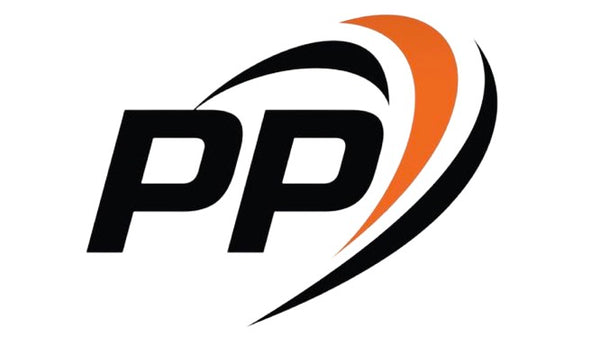Thymalin is a natural peptide isolated from the human thymus. The thymus is a central organ of the immune system and plays a key role in the development of T-lymphocytes—important cells responsible for the body's immune response.
The Path to Thymus Function Activation
The thymus, often referred to as the "heart gland," holds a crucial place in the immune system. It is responsible for the development of T-lymphocytes, which are essential for fighting infections and cancer cells. With age, thymus function typically declines, leading to compromised immune defense. In this context, Thymalin represents one of the most promising ways to activate thymus function.
- Stimulates T-Lymphocyte Production: Thymalin peptide helps the thymus produce more T-lymphocytes, which are vital for the body's immune response.
- Enhances T-Lymphocyte Functionality: Beyond increasing the number of T-lymphocytes, the peptide also boosts their activity, making them more effective in fighting infections.
- Supports Regenerative Processes: Thymalin stimulates regenerative processes in the thymus, aiding in the restoration of atrophied or damaged parts of the gland.
- Modulates Immune Response: Acting as a bioregulator, the peptide modulates immune reactions, helping to balance immune responses and prevent autoimmune reactions.
- Stimulates the Secretion of Thymic Factors: These factors are crucial for proper thymus function, and Thymalin helps enhance their secretion.
- Protects the Thymus from Toxic Substances: Thymalin may provide certain antioxidant and anti-inflammatory properties, helping the thymus defend against toxins and free radicals.
The peptide plays multiple roles in activating and maintaining thymus function, making it particularly valuable for immune health.
Unlocking Potential: How Thymalin Affects the Immune System

Thymalin exerts a strong and beneficial effect on the immune system. Its action is not merely superficial; it intervenes in the core processes of immune response. Let’s take a closer look at these influences:
- Stimulation of T-Lymphocytes: The primary function of the thymus is to "train" T-lymphocytes (a type of white blood cell) to recognize and attack foreign agents, such as viruses and bacteria. Thymalin peptide supports this process by accelerating the development and activation of T-lymphocytes.
- Regulation of Immune Response: Overactivity of the immune system can lead to autoimmune diseases, where the body attacks its own cells. The peptide regulates immune reactions, helping to balance different types of immune cells.
- Enhanced Regeneration: Thymalin stimulates regenerative processes in the thymus gland and speeds up the recovery of immune cells after stress or infection.
- Antioxidant Effect: Stress and oxidative damage can reduce immune system functionality. Thymalin acts as an antioxidant, helping immune cells better cope with oxidative stress.
- Improved Cellular Communication: Thymalin stimulates the secretion of cytokines and other signaling molecules that enhance communication between immune cells.
Thymalin not only strengthens the immune system but also regulates its functions, ensuring it operates efficiently and in balance. This peptide may play a key role in maintaining strong immune health, especially in today’s stressful lifestyle and challenging conditions.
Recovery and Regeneration
Everyone has experienced the consequences of injuries or prolonged illnesses—the physical discomfort, the lengthy recovery process, and often the feeling of diminished quality of life. In this context, the peptide Thymalin emerges as a potential ally, supporting these vital processes of recovery and regeneration.
Thymalin and the Regenerative Process
During injuries or illnesses, the need for effective recovery and cellular regeneration becomes critical. Here’s how Thymalin contributes to these processes:
- Supports Immune Response: Thymalin strengthens immune function, promoting a swift and efficient fight against infections, which is especially crucial after injuries or surgeries.
- Stimulates Regeneration: The peptide accelerates cellular repair by enhancing protein and DNA synthesis, leading to faster recovery of damaged tissues.
- Protects Against Oxidative Stress: Thymalin acts as an antioxidant, safeguarding cells from damage caused by free radicals, particularly after trauma or during inflammatory processes.
Recovery After Injuries and Illnesses
Following various injuries or surgical interventions, the body requires enhanced support for quick and successful healing. Thymalin demonstrates its advantages in several ways:
- Faster Healing: Patients using Thymalin often report accelerated wound healing and post-surgical recovery.
- Reduced Complications: Strengthening the immune system can help prevent secondary infections or other post-injury complications.
This peptide provides reliable support in the body’s fight against the effects of trauma and illness. Enhancing the body's regenerative abilities can often be a decisive factor in rapid and successful recovery.
Regeneration After Illness
Many diseases, particularly those involving inflammation or immune dysfunction, can lead to prolonged stress and bodily exhaustion. Thymalin aids in the rapid regeneration and restoration of bodily functions following stress or illness.
Peptide therapies have been successfully used in patients recovering from surgery, injuries, or prolonged illnesses. In addition to standard treatments, Thymalin can enhance overall recovery by accelerating the body's natural repair processes.
Conclusion
Thymalin, isolated from the thymus gland, is a key component in strengthening the immune system and supporting the body's regenerative processes. It acts as a bridge between cellular health and the optimal functionality of the immune system, providing natural protection and support in combating various diseases and recovering from injuries.
Scientific research and practical experience confirm Thymalin’s potential as an important tool in the field of regenerative medicine, earning its rightful place in modern therapeutic practices.

